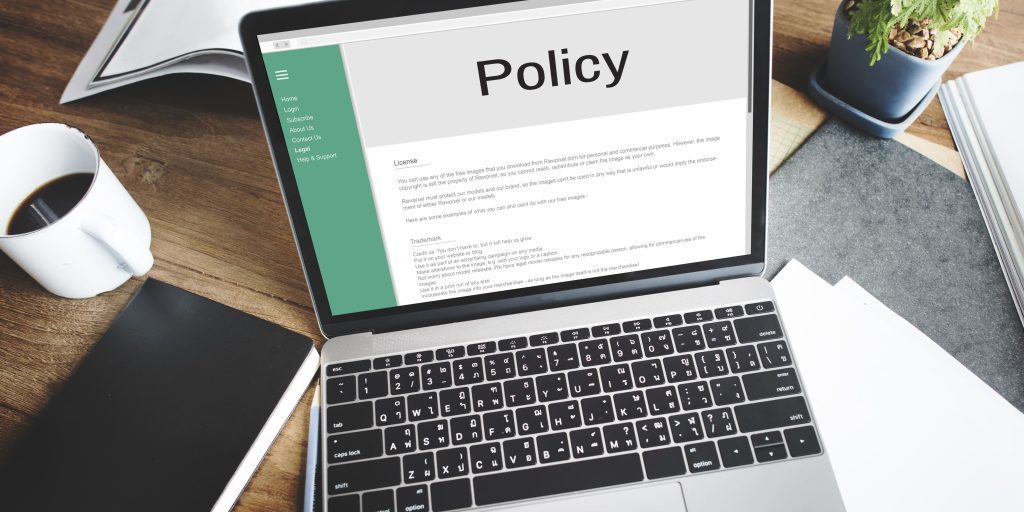As the global economy transitions toward more responsible and transparent business practices, Environmental, Social, and Governance (ESG) considerations are moving from the margins to the mainstream. No longer optional, strong ESG policy development is becoming a core expectation from investors, regulators, and other key stakeholders. In fact, a 2024 report revealed that over 90% of institutional investors consider ESG performance in their investment decisions.
Corporate sustainability policies today must go beyond general declarations, they require a structured, measurable, and transparent approach backed by solid governance frameworks. This article explores how businesses can craft robust ESG policies in 2025 and beyond, outlining key principles, best practices, and strategic insights for staying ahead of regulatory and stakeholder expectations.
Why ESG Policy Development Matters More Than Ever and Foundations of Effective ESG Policy Development
In 2025, the pressure on companies to demonstrate authentic ESG commitment is higher than ever. Regulatory frameworks like the EU’s Corporate Sustainability Reporting Directive (CSRD), India’s Business Responsibility and Sustainability Reporting (BRSR) Core, and the U.S. Securities and Exchange Commission’s (SEC’s) climate-related disclosures are reshaping the corporate reporting landscape. Beyond compliance, ESG policies provide the strategic foundation for long-term value creation.
Effective ESG policy development signals a company’s intent to manage risks, seize opportunities, and build resilience. It also shapes internal behaviors, aligns stakeholder expectations, and forms the baseline for performance tracking and disclosure.
The cornerstone of effective ESG policy development lies in a strategic and systematic approach. It begins with a thorough materiality assessment to identify the most significant ESG issues for a company and its stakeholders. Simultaneously, comprehensive stakeholder engagement is vital; by involving employees, investors, customers, and communities, policies gain legitimacy and are better tailored to diverse expectations.
Finally, integrating these policies into core business objectives from the outset, rather than treating them as separate initiatives, is crucial for successful implementation and long-term impact.

Best Practices for ESG Policy Development in 2025
To navigate the complexity of evolving expectations, organizations can adopt these ESG best practices to future-proof their policies:
1. Ensure Stakeholder Engagement is Central
Stakeholders are powerful ESG accelerators. Regular engagement helps ensure that your policies reflect current concerns and emerging expectations. Mechanisms like ESG roundtables, surveys, and grievance channels are essential to maintaining credibility and responsiveness.
2. Adopt Global Frameworks and Standards
To ensure transparency and comparability, companies should align their policies with global ESG standards such as the GRI (Global Reporting Initiative), TCFD (Task Force on Climate-related Financial Disclosures), SASB (Sustainability Accounting Standards Board), and ISSB (International Sustainability Standards Board). Emerging regulations like CSRD and BRSR Core increasingly require such alignment.
3. Leverage ESG Technology Platforms
With the complexity of data and disclosures growing, digital ESG platforms can support policy implementation through automated data collection, real-time analytics, and customizable reporting dashboards. These tools help companies track performance, identify gaps, and respond to stakeholder queries efficiently.
4. Build a Culture of ESG Ownership
A policy is only as effective as its execution. Companies should invest in ESG training, internal communication campaigns, and employee incentives to embed sustainability across teams. This drives not just compliance, but cultural transformation.
5. Regular Review and Continuous Improvement
Robust corporate sustainability policies include periodic policy reviews, internal audits, and benchmarking exercises to stay aligned with shifting standards, technologies, and stakeholder expectations.
Strategic Value and Future Outlook
Developing strong ESG policies is not just about risk mitigation, it is a strategic differentiator. Companies with well-defined ESG governance frameworks report stronger brand loyalty, greater investor confidence, and better access to capital. Moreover, firms with mature ESG policies are more agile in responding to future disruptions—from climate shocks to supply chain crises.
In the coming years, we can expect a shift from voluntary ESG disclosures to regulated, audited sustainability reporting. Companies that proactively develop mature ESG policies now will not only comply with future requirements but lead the market in trust, resilience, and impact.
NeoImpact’s platform offers comprehensive competitor benchmarking, enabling companies to identify the best practices within their industry. This capability greatly assists in the development of effective ESG policies, ensuring they are competitive and aligned with leading standards. By understanding how peers manage ESG risks and opportunities, corporates can proactively address potential issues before they escalate, enhancing their risk mitigation strategies and be future-ready.
Conclusion
In today’s evolving ESG landscape, developing robust, future-ready policies is no longer optional, it is a strategic imperative. As expectations from investors, regulators, and other stakeholders intensify, companies must adopt a structured, transparent, and stakeholder-informed approach to ESG. By embedding governance frameworks, aligning with global standards, leveraging technology, and fostering a culture of accountability, businesses can transform compliance into competitive advantage.
NeoImpact’s tailored ESG advisory and benchmarking capabilities empower companies to craft impactful, resilient policies that drive long-term value. Ultimately, strategic ESG policy development enables organizations to manage risk, build trust, and lead responsibly in 2025 and beyond.
